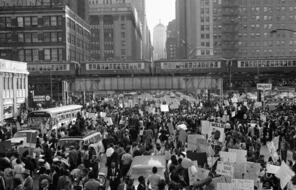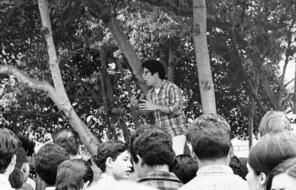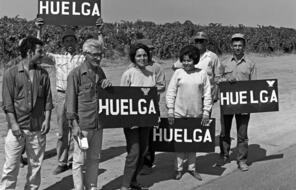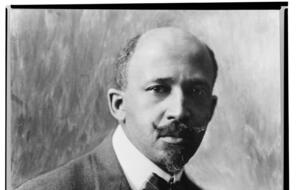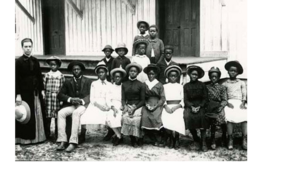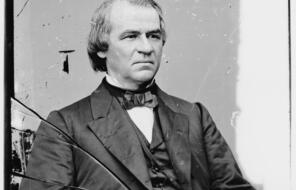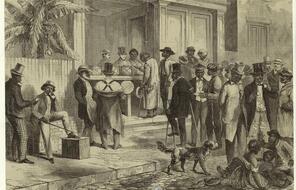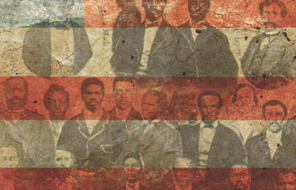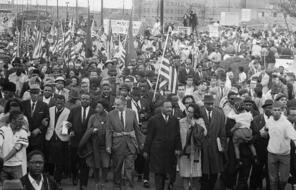Roosevelt Williams Recalls Farming During His Youth in Alabama
At a Glance
Language
English — USSubject
- History
- Racism
Roosevelt Williams, who was born in 1912 and lived in Mississippi, was interviewed in the 1990s about living in the segregated South. In this excerpt from the interview, Williams describes farming cotton in Alabama.
ORTIZ (INTERVIEWER): What year did you get married?
R. WILLIAMS: I got married in 1931.
ORTIZ: So you had your own land?
R. WILLIAMS: Yeah.
ORTIZ: Did you purchase that?
R. WILLIAMS: I inherited twenty acres from my grandparents and I bought another forty acres myself. That was sixty acres. I had that to farm on, see.
ORTIZ: I’ve heard that those were very difficult years.
R. WILLIAMS: Oh, it was. They were difficult years. You see, cotton got as low as 5 cents a pound. It’d take lots of work to make a bale of cotton, and so you didn’t get nothing much out of it for what you were doing. And you’d have to have money to farm on. By the time you support your farm and everything, when gathering time come, you had to pay it all out, whatever you made, most of it, so you didn’t hardly clear no money. Mighty little, if any.
ORTIZ: Who would you sell your crop to?
R. WILLIAMS: Well, they had an open market, you know, in a little old town, like Carrollton and Aliceville. They had regular buyers to buy this cotton. Of course, we had to take it to the gin. You’d take it there and have it ginned, and they’d give you a sample, what they called. When you’d get ready to sell it, you’d take it before this buyer, and he’ll examine that cotton, and depend on what length it was and everything, and he’ll pay you accordingly, but it wasn’t much.
That was about the biggest cash crop you had, because you could raise a lot of other stuff, but you couldn’t sell it. You didn’t have nobody to buy it. And so cotton, as I said, that was the biggest thing we had to depend on as far as cash. But we’d raise corn and we had grits meal, make our own meal and stuff, as far as that goes, and things like that, and raise our own hogs and kill hogs and have plenty meat and stuff like that. 128 It’s just the way we had to come up. As I said, we’d have plenty of that, whatever it was, but all this other fancy stuff, maybe what we wanted, we wasn’t able to buy it. We’d raise cows and things. If you killed a cow, you didn’t have no refrigeration, nothing much. You couldn’t keep your meat and stuff. Now, that pork, that hog, we would cure that, smoke it, and you could keep that. 1
- 1Roosevelt Williams, interview by Paul Ortiz, June 24, 1993, “Roosevelt Williams interview,” Behind the Veil, Duke University Digital Collections, accessed May 6, 2014, Duke University Libraries Digital Collections.
How to Cite This Reading
Facing History & Ourselves, “Roosevelt Williams Recalls Farming During His Youth in Alabama,” last updated March 14, 2016.
This reading contains text not authored by Facing History & Ourselves. See footnotes for source information.

